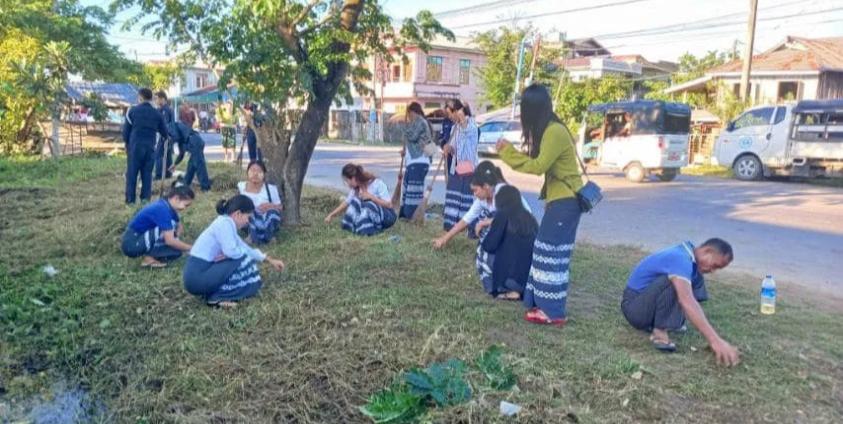In Arakan State, where the military government is still operational, staff in Sittwe and Kyaukphyu towns are not allowed to travel and their requests to be transferred have been denied.
A female government employee in Sittwe Township informed Narinjara News that staff are experiencing major challenges because of the restrictions on travel and the rejection of transfer applications.
“Because I am employed in Sittwe, I was refused a transfer. Currently, Sittwe is only inhabited by workers and laborers. The majority of employees are facing financial difficulties and have no alternative choices,” she stated.
The woman described how department employees are in a crisis because of the junta's travel bans and have also lost their job perks.
“Staff in Sittwe and Kyaukphyu are paid between 300,000 and 400,000 kyats as their salaries. Nevertheless, given the increasing expenses, it is inadequate. There has been no raise in salary. If you receive an invitation to one occasion, you should make sure to be present; if invited to another, you should also make sure to go. Resignations are not allowed in the dangerous work environment we are in,” she said.
A man who is related to a departmental staff member in Kyaukphyu Town informed Narinjara News that despite residents leaving the town because of military tensions, the departmental staff are continuing to work.
"Inhabitants have evacuated to neighboring locations, while a few healthcare workers and teachers have gone back to their hometowns. Some workers are staying in the town, unable to depart for the mainland. They are currently residing in Kyaukphyu Town under tight supervision,” he mentioned.
Members of the departmental staff can only embark on trips to the mainland for official duties. In order to achieve this, they need to get permission, which includes the state governor's signature, the department's top officer's signature, and a travel authorization.
Despite the absence of any ongoing conflict, grassroots workers in Sittwe and Kyaukphyu are experiencing fear and are unable to leave the towns due to the lack of security.







